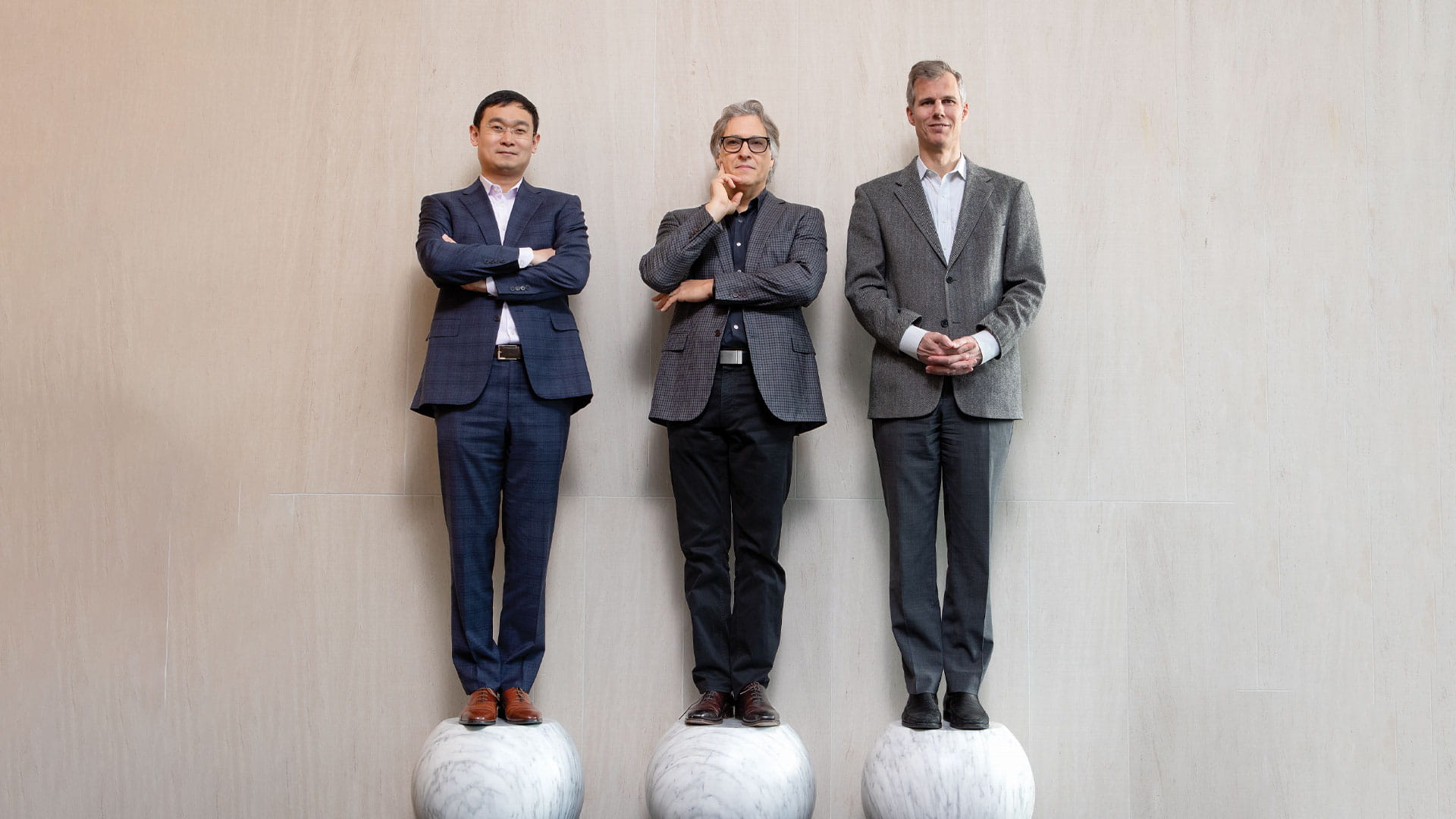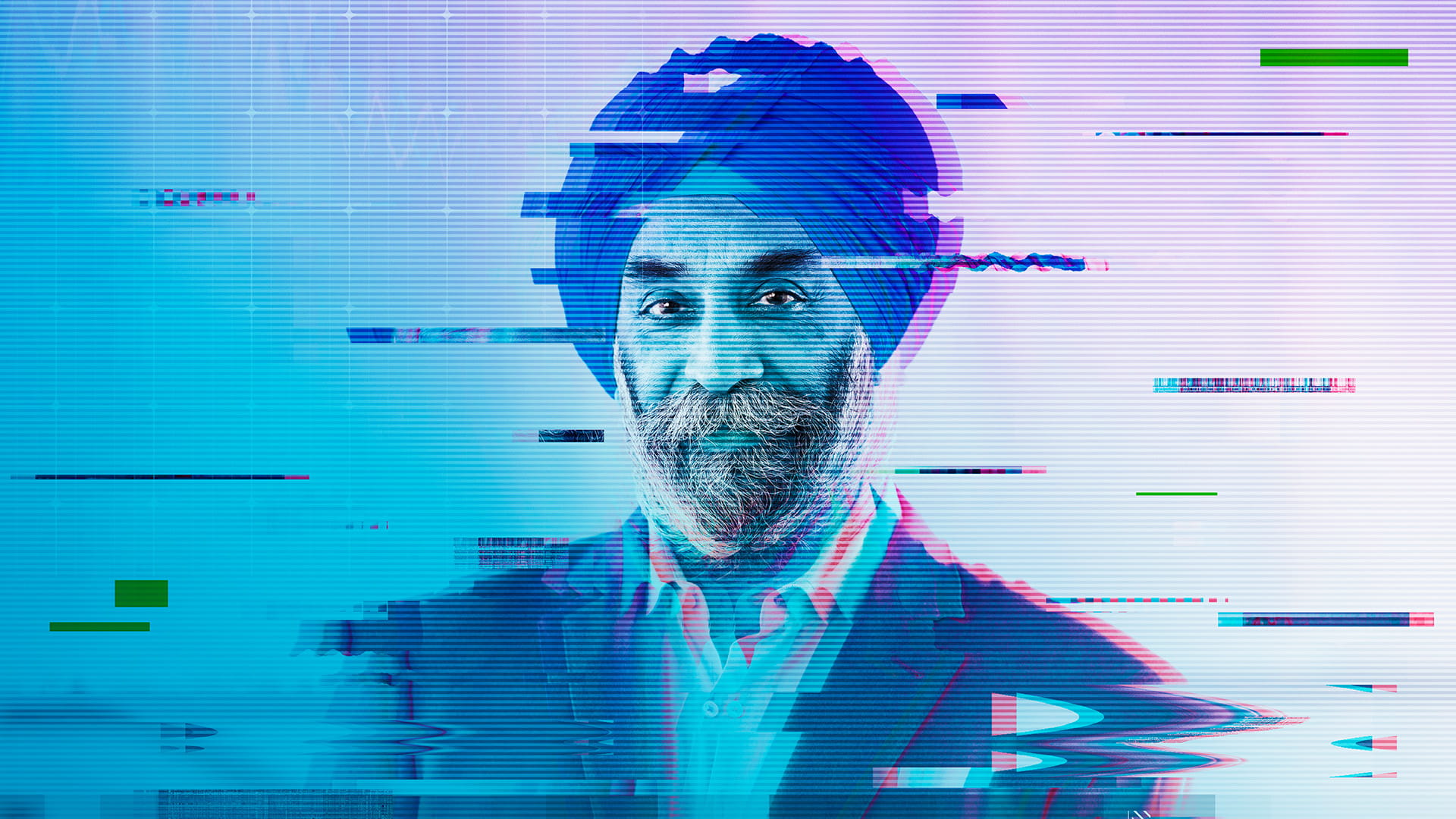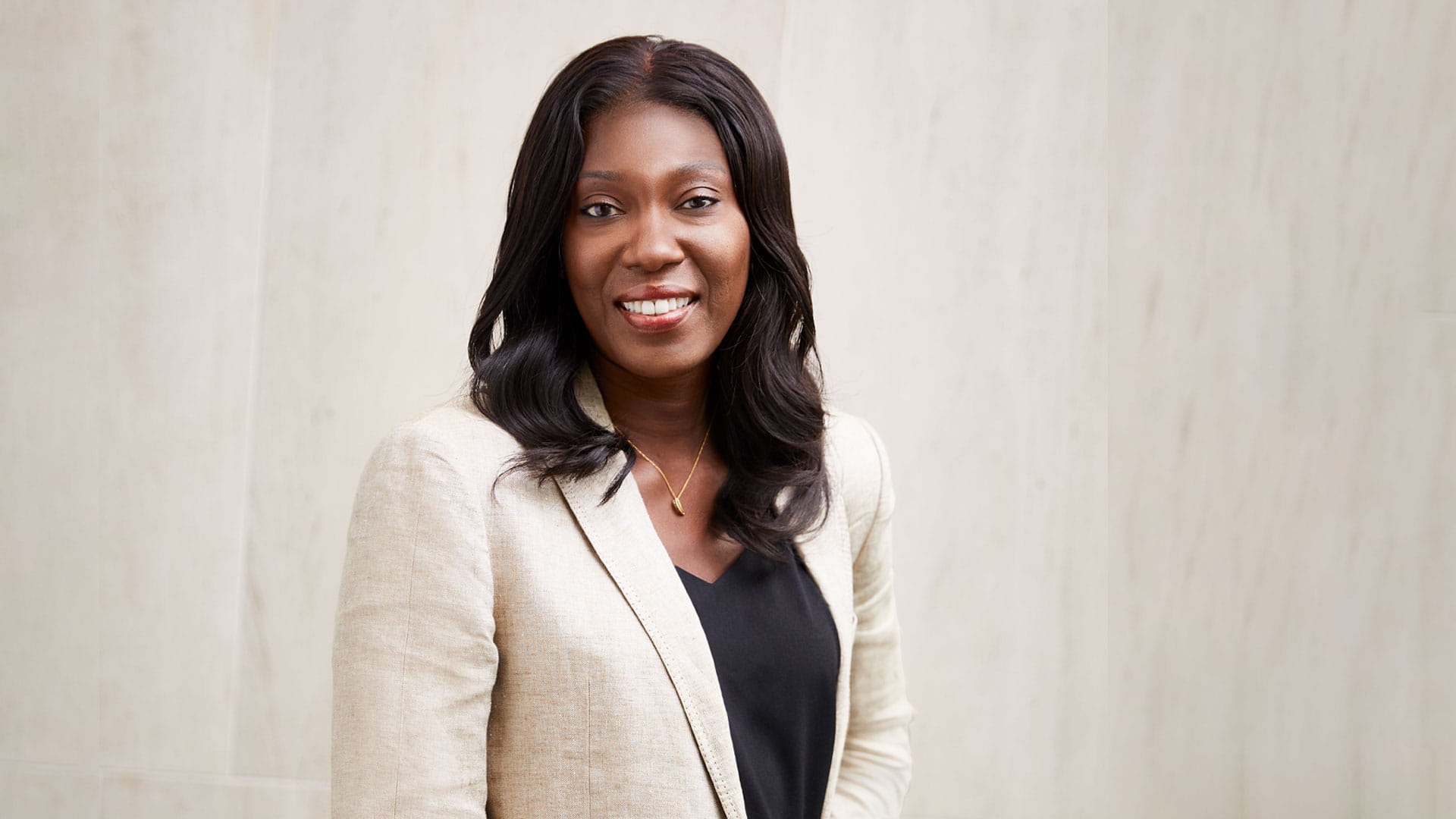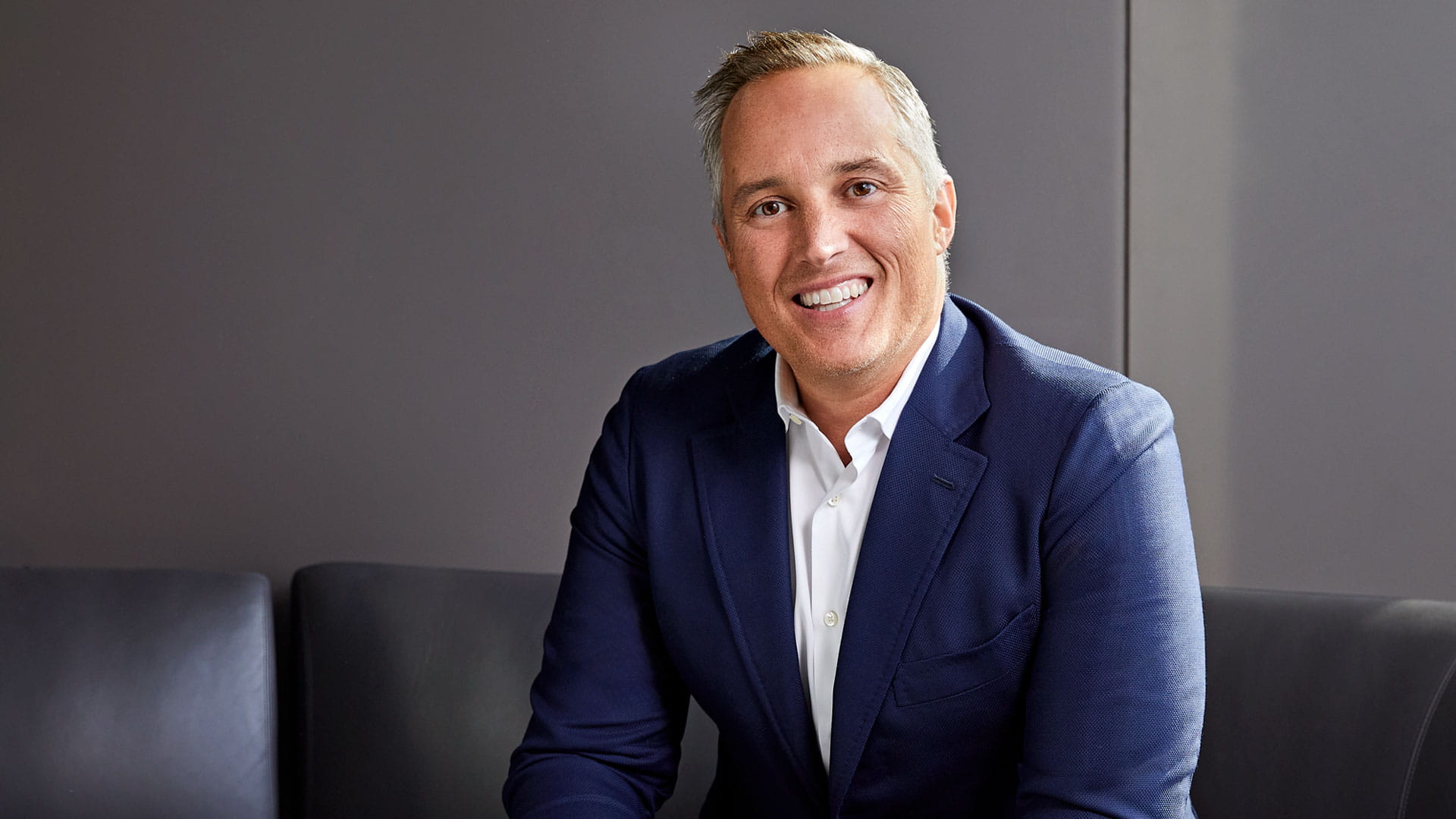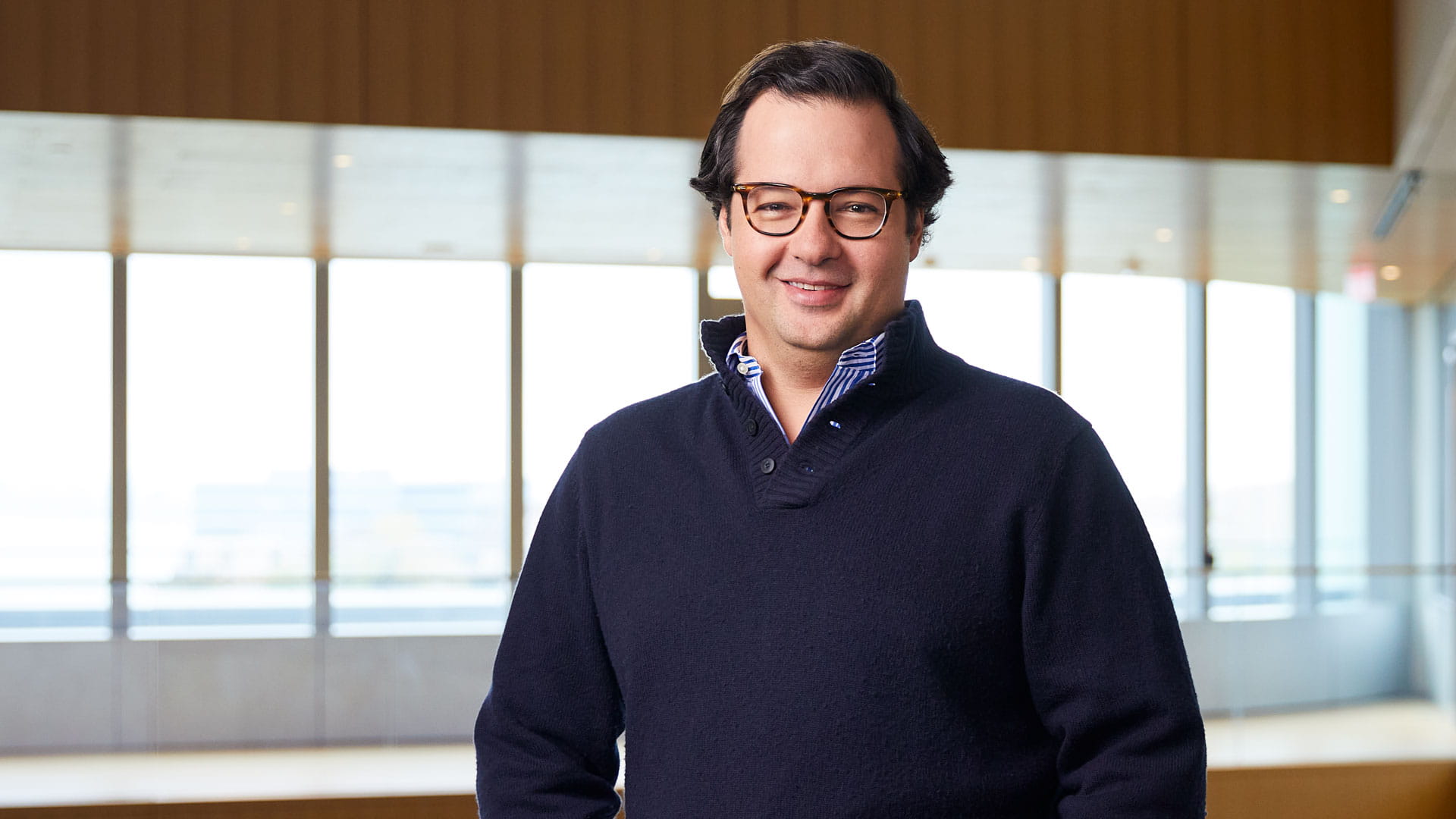Imagine if you will, a prism held up to a beam of sunlight, this small piece of glass splits the light we thought we saw into bands of color that were always there but invisible to us on their own, each hidden within the greater whole.
In a similar way, the multidisciplinary field of complexity science offers up a new lens through which to see the world. What if, its proponents posit, the phenomena around us are best understood not as a collection of predictable, well-behaved causes and effects, but rather as a tangle of interrelated and often invisible forces, each pushing and pulling against each other as components of a larger and much messier system?
It’s an approach that demands interdisciplinary research teams, and scholars in the natural sciences have in recent years embraced complexity science to investigate systems both large and small: from Earth’s climate down to the very cells in your body. In a watershed moment, the Royal Swedish Academy of Sciences awarded the 2021 Nobel Prize in Physics to three scholars for their work on complex systems, the first time the academy explicitly mentioned the field in an award.
But complexity science’s potential in the realm of business is just starting to be tapped. The possibilities are tantalizing: What if this approach could help us better understand the many varied, intertwined forces driving a stock market? A hospital? A team dynamic? A nation’s innovativeness?
Enter the Ryan Institute on Complexity at the Kellogg School of Management, a new research institute debuting this year. The first institute of its kind to be housed in a business school, the Ryan Institute will gather leaders from academia and industry with PhD students and postdoctoral fellows — all from diverse fields — to collectively study a variety of issues affecting society. Initial areas of focus will include the power of social networks, the secrets of invention and human-machine partnerships.
“Our vision is bold — that complexity science shall permeate every aspect of business, with the most effective leaders succeeding through under-standing and managing a system’s connectivity,” says Francesca Cornelli, dean and the Donald P. Jacobs Chair of Finance. “Thanks to the generosity of the Ryan Family, Kellogg will drive a new field and best prepare the leaders of the future.”
Guiding the Ryan Institute are three renowned Kellogg scholars — physicist Dashun Wang, economist Ben Jones and sociologist Brian Uzzi — who know a thing or two about working across disciplines, both as frequent collaborators and as friends. Kellogg magazine gathered these three founding faculty directors for a wide-ranging discussion about the power of multiple perspectives and their vision for this new institute.
Our vision is bold — that complexity science shall permeate every aspect of business, with the most effective leaders succeeding through understanding and managing a system’s connectivity.
KELLOGG: What motivated each of you to become involved in this new institute’s creation?
DASHUN WANG: First of all, the opportunity is right: This is the thing to do, especially given the Nobel going to complexity science in 2021. So, applying what we have learned about complexity science from the natural sciences to business is truly one of the greatest opportunities of our time.
BEN JONES: I agree. And the other aspect this institute leverages is what’s called a “dry lab” model for doing social science research, where Brian and Dashun have been real leaders and innovators in social science. The advent of big data has created enormous opportunities to study social and business phenomena at a very, very high scale and reveal many important discoveries. The challenge, of course, is that it takes a lot of effort to analyze that amount of data effectively. When you can build a laboratory model to bring the personnel and the toolkits together to attack these questions, there’s an opportunity for much faster, deeper, more generalizable insights. That research format, which this institute will both support financially and promote, is really just a game changer. It’s extremely exciting for us personally and, we think, for the research profession as a whole.
BRIAN UZZI: Exactly. This institute will have the ability to build a whole intellectual approach to the study of social relationships, the economy, AI and beyond, which is really very exciting. And I think now is the right time to do that: I see this blue sky in terms of research and the development of ideas that can result in some large steps forward. That’s such a fantastic opportunity for the school, and for us as researchers.
WANG: I’d also add that Kellogg is in a unique position to capture this opportunity, and we have the right people to do it. I don’t know about these guys, but if you asked me who are the two researchers I would want to start this with, it would be Brian Uzzi and Ben Jones. We’ve been honing our collaboration machine among the three of us for a long time. We’ve been working with students and other Kellogg and Northwestern faculty, and now this new institute can create a lasting legacy and a substantial lead over other universities in this area.
Meet the directors
The Ryan Institute on Complexity will be led by three Kellogg professors who are global leaders in scientific approaches to networks, machine learning, creativity and other foundational areas of complex systems:
DASHUN WANGPhysicist, Professor of Management and Organizations 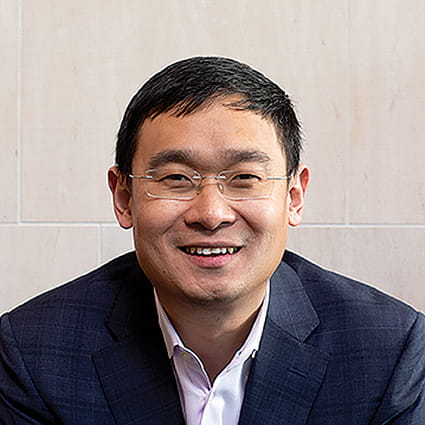
|
BEN JONESEconomist, Professor of Entrepreneurship, Professor of Strategy 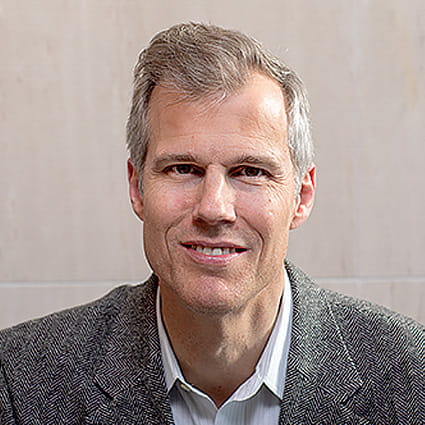
|
BRIAN UZZISocial Scientist, Professor of Leadership and Organizational Change 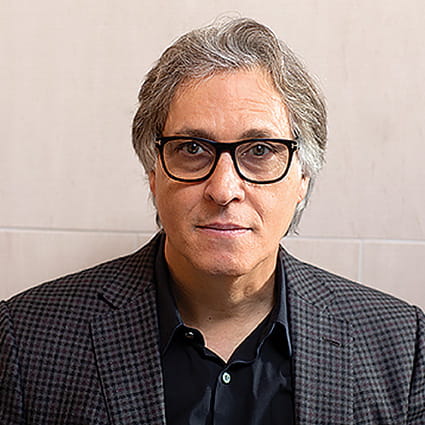
|
KELLOGG: At the heart of the new institute is a model that emphasizes interdisciplinary research. Can you share examples from your own work when a perspective from outside your field enhanced what you were doing?
WANG: The three of us are a great example — we’re a physicist, an economist and a sociologist working together, and I’m not sure there’s another configuration of scholars like us out there writing papers together. In my own current lab, there are people with PhDs from political science, sociology, computer science, applied math, economics and computer science, so it’s a diverse group.
What I’ve learned is that putting people together is powerful, but it’s not that easy to do. It can take a really long time to understand who to bring in, how to identify the talent and how to put them together. But if you can do that successfully, then all these wonderful things will follow: You can scale, you can attack more problems, and you can take bigger risks. We’re also thinking a lot lately about training future leaders, and when you put students into that lab, they gain a larger repertoire of tools and experiences.
UZZI: I’d add that one of the things I love about the interdisciplinary collaboration that I’ve done with Ben and Dashun is that it’s exhilarating. Some collaboration is about essentially having more hands take your ideas and execute them. But I think the interdisciplinary approach is when you stand back from what you’ve done, and you say, “Wow, I could not have done this on my own.”
For example, in the papers I’ve written with Ben over the years on teams and invention, I approach the work very much from a sociological point of view about people’s relationships with one another. And then Ben takes a look at it, and suddenly I see a whole new space that I hadn’t thought about before. That’s a very practical way to fill in your blind spots, but it’s also a way as a scientist to feel like you’re constantly growing. The collaboration brings so much to you on a personal level.
JONES: You know, Brian, I think of how many economists and sociologists write together, and it doesn’t happen that often. For us, we got to know each other over time, kind of indirectly. We realized we had similar interests and thought, “Hey, maybe we could think of a research project together.”
I think the interdisciplinary approach is when you stand back from what you’ve done, and you say, “Wow, I could not have done this on my own.”
I have my own blind spots, and in our work together, Brian would say, “Well, I think we should add this kind of analysis,” and that wouldn’t even have occurred to me from an economics point of view. I’ve learned so much from Brian and Dashun about different ways to perceive the importance of a question.
WANG: And it’s got to be with people you trust and respect. You know, like when Brian says something, I take notes.
JONES: Right, and it’s so important to have humility in your own research. We live in a world where there’s a lot that is known. But sometimes when you know something well, you can get into a silo of thought.
Particularly in a business context — where often there are very complex, rich phenomena integrating many different issues — you need to have the humility to say, “I’ve got this particular perspective, which can be powerful but also limiting.” When you realize there are adjacent areas that have valuable perspectives, you can really begin to come at problems in a much more comprehensive, and ultimately more productive, way.
KELLOGG: That’s another layer to this institute — that it will be housed within Kellogg. There isn’t another complexity-science research institute like this in any other business school. Why is that important?
WANG: When I think about this question, I look back on my own evolution as a researcher. I was a physicist, and for whatever reason, someone thought I would do well at a business school, even though I had no idea what it would be like. I joined Kellogg and quickly realized it is the right environment for me. And as I started learning more, my view of business also shifted: You see so much negativity in the news about corporations or the superrich, but at the same time, I also came to understand that business can be an enormous force for good, like helping people out of poverty in developing regions or allowing people to realize their full potential.
So if we can integrate complexity science and this fundamental thinking from physics and the natural sciences and apply it to business — while developing thought leadership and training future leaders in the school — that could be a very meaningful contribution to society.
UZZI: You know, I think about how Kellogg’s reputation in science and scholarship of game theory and negotiations is really, really strong. And in a lot of ways Kellogg is the school that created that body of knowledge — not only in the scientific literature but also in the classroom — and we were copied by everybody, which is a great compliment to us.
Historically, part of what supercharged Kellogg to be able to make these advances in those two areas was the founding of an institute. And I think one of the things about this institute is that it continues and extends Kellogg’s approach to making giant breakthroughs. To me, the Ryan Institute on Complexity’s connection to the past is another giant stepping stone for us into the future.
A Transformative Gift
Funded by a $25 million gift from the Ryan Family Foundation, the Ryan Institute on Complexity will drive the creation of novel curricula at Kellogg, host an annual conference of thought leaders, and collaborate closely with Northwestern’s schools and institutions.
“We are thrilled to support the establishment of this revolutionary research institute,” said Pat Ryan Jr. ’97 JD, MBA, a Northwestern University trustee. “Cutting-edge analytical approaches can now unlock unimaginable under-standings of our complex world that will be transformational for business and society.”
The foundation is the philanthropic arm of the Ryan Family, which includes Pat ’59, ’09 H (’97, ’00 P) and Shirley ’61, ’19 H (’97, ’00 P); Pat ’97 JD, MBA and Lydia; Rob ’00 JD, MBA and Jennifer; and Corbett.

